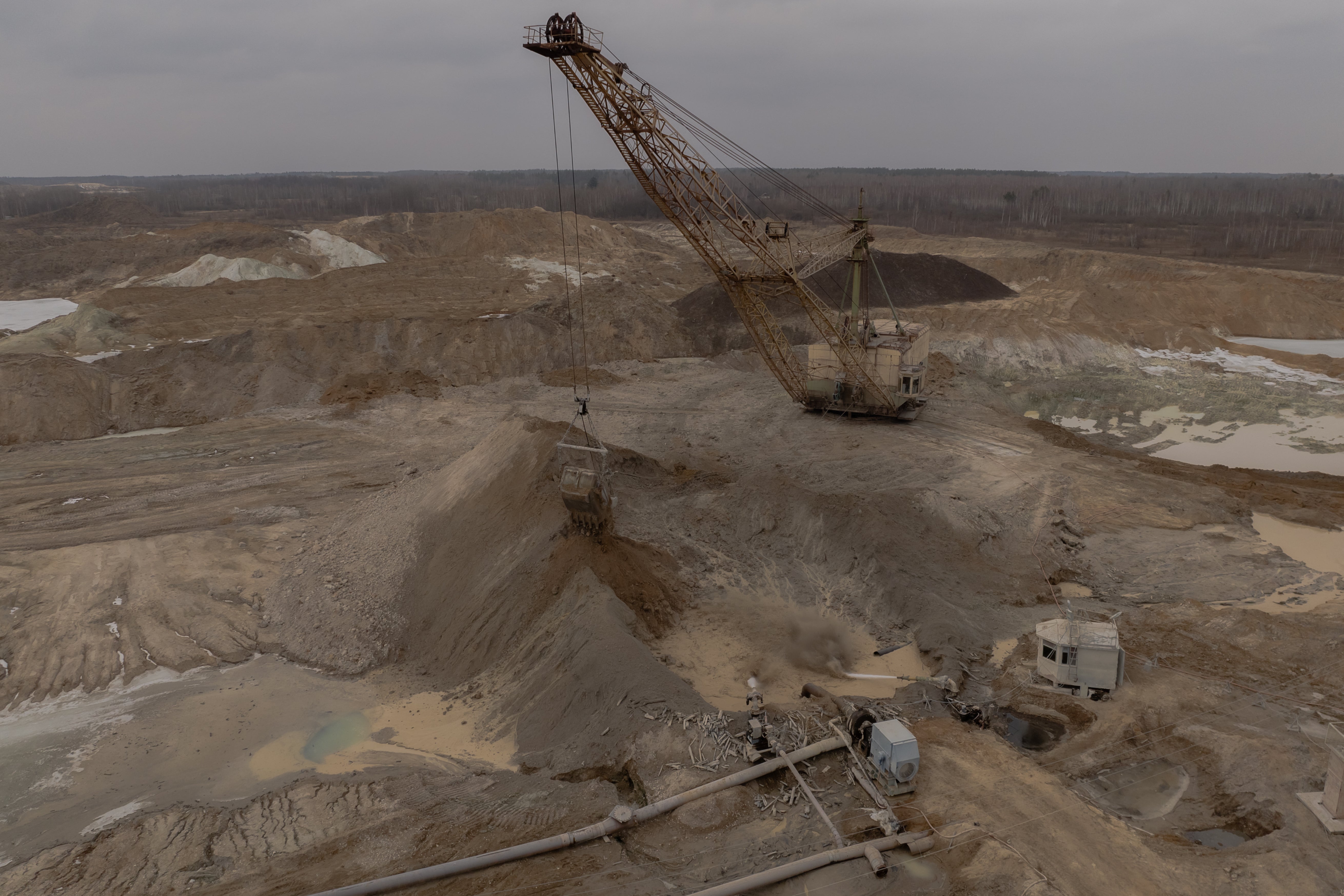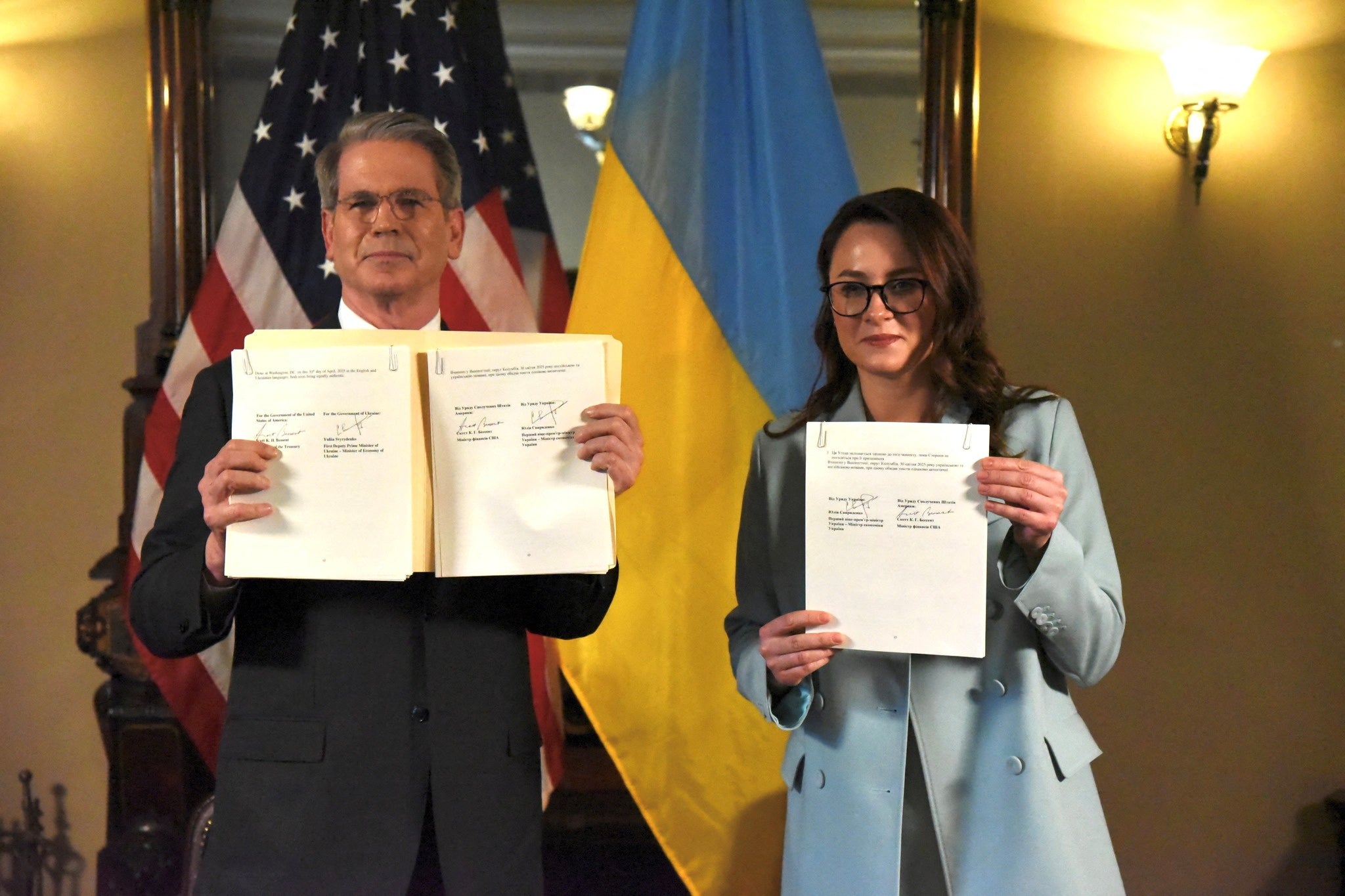ARTICLE AD BOX
Russia greeted a mineral deal signed between the United States and Ukraine with glee through gritted teeth.
Dmitri Medvedev, the former president, said the deal means Ukraine “will have to pay for military supplies with the national wealth of a disappearing country”. It does not.
It does mean that, for the first time this year, the US now sees Ukraine as a financial asset.
Switching the White House perception of the country - as one that brought the Russian invasion on itself, was risking World War III, and is losing the war - to one where American financial skin is in the game has been a triumph of Ukrainian diplomacy.
Scott Bessent, the treasury secretary who first presented Kyiv with a deal that was nothing short of a mafia protection racket shakedown said this: “This agreement signals clearly to Russia that the Trump Administration is committed to a peace process centered on a free, sovereign, and prosperous Ukraine over the long term”.

A free and sovereign Ukraine is a long way from the country that Donald Trump said earlier this year might not exist in the future.
But critically Julia Svryrydenko, the first prime Minister of Ukraine who signed the deal, said on X: “The United States will contribute to the Fund. In addition to direct financial contributions, it may also provide NEW assistance — for example, air defense systems for Ukraine”.
America already does that. But Trump had threatened to take away all military assistance. He also suspended the US intelligence feed to Kyiv when Vladimir Putin launched his attack to free Kursk in March. Saying that more air defence is on its way, and agreeing a deal that gives Trump financial skin in the game is a boon to Ukraine and a blow to the Kremlin.
“It is an agreement that reaffirms the United States of America’s commitment to Ukraine’s security, recovery, and reconstruction,” Svryrydenko said. She is right – for now.
The Ukrainians said that the agreement to share future profits on the 50-50 split on the new exploitation of mineral reserves through a jointly run fund would also ensure that existing state and private enterprises were outside the agreement. They also hope to be able to persuade the US that, for ten years, profits would be re-invested in Ukraine not exported back to America.
Ukraine’s mineral resources are underdeveloped. In the eastern parts of the Donbas, occupied by Russia since 2014/15, huge coal mines have been taken over by the Kremlin, or shuttered.

But elsewhere the nation could provide an alternative source of rare earth and other minerals that are critical for high technology production.
It could supply the West with lithium, beryllium, manganese, gallium, zirconium, graphite, apatite, fluorite and nickel. It also has one of Europe's largest confirmed reserves, estimated at 500,000 tonnes of lithium - vital for batteries, ceramics, and glass.
The country has titanium still underground, mostly located in its northwestern and central regions, while lithium is found in the centre, east and southeast.

The reserves of graphite, a key component in electric vehicle batteries and nuclear reactors, represent 20% of global resources. The deposits are in the centre and west – all free of Russian troops.
Trump’s preoccupation with the resources still unlocked in Greenland are a strong indication that he is keen to secure American access to Ukraine’s minerals. The hope in Kyiv is that he may now be more keen to defend them against Russia.
On Wednesday Trump said that he didn’t want to look “foolish” in sending US aid to defend Ukraine against Russia’s invasion.
This deal gives him a “win” – he had been made to feel that America will gain from its investment in Kyiv – which amounts to about $130 billion. A great deal of that has been in weapons and ammunition – most of which has actually been spent on old weapons or manufacturing new equipment in the US.
Nonetheless by striking the mineral deal, Trump has been prised away from the embrace of Putin because he sees more immediate financial and personal profit now in Kyiv.
He is fickle and fissile and there will be many opportunities to accidentally drive him back into the arms of Moscow where he feels safe and celebrated after years of flattery by the Kremlin.
He has not acted on principle in defending a young democracy against a foreign invasion and he has not agreed the deal because it binds America back into the fabric of Europe after ripping it out.
But he is on board – which means Volodymyr Zelensky has outplayed the master manipulator Putin.









 English (US) ·
English (US) ·